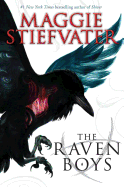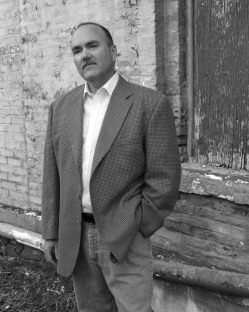 D.E. (Dan) Johnson is the author of the historical mysteries The Detroit Electric Scheme and Motor City Shakedown (both St. Martin's/Minotaur). The third book in the Will Anderson series, Detroit Breakdown, was just published by Minotaur. Johnson is a history buff who has been writing fiction since his childhood in Kalamazoo, Mich. The early 20th century, a time of big ambitions, huge achievements and crushing poverty, holds a special fascination for him. He is married, has three daughters and once again lives near Kalamazoo.
D.E. (Dan) Johnson is the author of the historical mysteries The Detroit Electric Scheme and Motor City Shakedown (both St. Martin's/Minotaur). The third book in the Will Anderson series, Detroit Breakdown, was just published by Minotaur. Johnson is a history buff who has been writing fiction since his childhood in Kalamazoo, Mich. The early 20th century, a time of big ambitions, huge achievements and crushing poverty, holds a special fascination for him. He is married, has three daughters and once again lives near Kalamazoo.
On your nightstand now:
The fourth book in my series is going to be set during the 1912 Presidential election, so I'm currently reading these books for research: The War Lovers: Roosevelt, Lodge, Hearst, and the Rush to Empire, 1898 by Evan Thomas and 1912: Wilson, Roosevelt, Taft and Debs--The Election That Changed the Country by James Chace. They are both excellent books, but I have to say I'm a fiction guy, so for fun I'm reading The Corpus Conumdrum by Albert A. Bell, Jr. It's the third in a wonderful mystery series set in Ancient Rome.
Favorite book when you were a child:
I'd probably have to go with the Encyclopedia Brown series. I remember a case in which Encyclopedia deduced that a Civil War Confederate sword was a fake because it was engraved with "The First Battle of Bull Run." Not only wouldn't they have known there was going to be a second battle at that time, the Rebs called it "the Battle of Manassas." Of course, he figured it out in a snap. That Encyclopedia was one sharp kid. (But I still can't imagine why that story has stuck with me for over 40 years.)
Your top five authors:
It would be easier to list the top 50. My taste runs to historical fiction and crime, so I'll go with T.C. Boyle, James Lee Burke, E.L. Doctorow, Elmore Leonard and Walter Mosley. Let me write like a blended clone of Doctorow and Leonard, and I'll die happy.
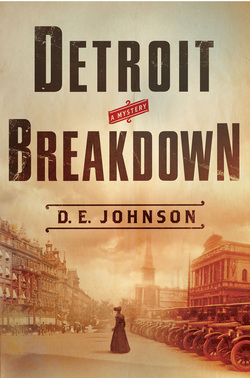 Book you've faked reading:
Book you've faked reading:
Can't think of any. I probably should fake having read the classics, but I'm an unapologetic modern fiction reader. I'm not really interested in many of the classics, and, truth be told, the only literature class I took in college was kiddie lit. (Teaching major.) Outside of "popular" writers like Twain, Dickens and Poe, I don't have the patience for many old books.
Book you're an evangelist for:
Whiskey River by Loren Estleman. Loren has written some outstanding novels, and this one opened my eyes to the idea of writing historical mysteries set in Detroit. He's a master, and I think this is his best.
Book you've bought for the cover:
The Road to Wellville by T.C. Boyle. I'd never heard of him when I saw the hardcover of this book lying on the new fiction table at my local independent bookstore. It's a grandiose cover just branded with the promise of a great story, which Tom delivered in spades. One of my all-time favorites.
Book that changed your life:
The Catcher in the Rye. I remember getting in trouble in high school study hall for laughing out loud while reading it. It was the first book that I remember absolutely knowing the protagonist, and the first time I knew that someone else felt the same way I did. It particularly shocked me that this was a book written by a member of my parents' generation. For the first time I realized that my times and my problems weren't unique.
Favorite line from a book:
"Riding up the winding road of Saint Agnes Cemetery in the back of the rattling old truck, Francis Phelan became aware that the dead, even more than the living, settled down in neighborhoods."
The opening line of Ironweed, William Kennedy's brilliant Pulitzer Prize-winning novel of the Depression. That one line sets up a gut-wrenching story about the value of a life, even in the most tragic circumstances. My favorite book of all time.
Book you most want to read again for the first time:
To Kill a Mockingbird. Unlike everyone else in the U.S., I didn't read it until adulthood. As soon as I finished it, I read it again. I've never done that with another book (other than my own, and that's called rewriting). I just wish Harper and J.D would have written more books. I know I shouldn't, but I feel cheated.
Why do you write about turn-of-the-20th-century Detroit?
So many reasons.... At the time, Detroit was known as the "Paris of the West." It was an amazing city, growing like wildfire, beautiful and prosperous. In my lifetime, it's been anything but. My research made me fall in love with the city. The early 1900s were the time that the U.S. came into its own and became the country it is today, for good and for bad. The parallels between that time and today are remarkable. People were struggling with the same issues we are now, and I found I could completely identify with the folks who lived a hundred years ago, which let me write them with empathy.
 Delaware Chancery Court Judge Leo Strine approved Barnes & Noble founder and chairman Leonard Riggio's $29 million settlement of investors' claims regarding the 2009 agreement in which B&N reacquired Barnes & Noble College Booksellers from Riggio for $514 million, Bloomberg reported.
Delaware Chancery Court Judge Leo Strine approved Barnes & Noble founder and chairman Leonard Riggio's $29 million settlement of investors' claims regarding the 2009 agreement in which B&N reacquired Barnes & Noble College Booksellers from Riggio for $514 million, Bloomberg reported. 









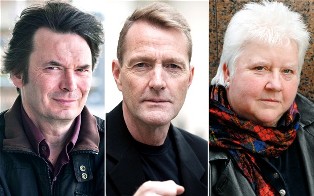 "These days more and more books are bought, sold, and recommended online, and the health of this exciting new ecosystem depends entirely on free and honest conversation among readers," the authors, who included Ian Rankin, Lee Child, Val McDermid (pictured at left), Susan Hill and Helen FitzGerald, wrote. "But some writers are misusing these new channels in ways that are fraudulent and damaging to publishing at large.... We unreservedly condemn this behaviour, and commit never to use such tactics." They added that "the only lasting solution is for readers to take possession of the process.... Your honest and heartfelt reviews, good or bad, enthusiastic or disapproving, can drown out the phoney voices, and the underhanded tactics will be marginalised to the point of irrelevance."
"These days more and more books are bought, sold, and recommended online, and the health of this exciting new ecosystem depends entirely on free and honest conversation among readers," the authors, who included Ian Rankin, Lee Child, Val McDermid (pictured at left), Susan Hill and Helen FitzGerald, wrote. "But some writers are misusing these new channels in ways that are fraudulent and damaging to publishing at large.... We unreservedly condemn this behaviour, and commit never to use such tactics." They added that "the only lasting solution is for readers to take possession of the process.... Your honest and heartfelt reviews, good or bad, enthusiastic or disapproving, can drown out the phoney voices, and the underhanded tactics will be marginalised to the point of irrelevance."
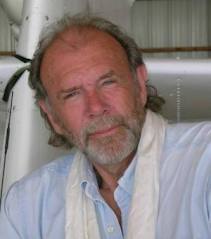 Author Richard Bach, an avid pilot whose novel Jonathan Livingston Seagull was a bestseller in the early '70s,
Author Richard Bach, an avid pilot whose novel Jonathan Livingston Seagull was a bestseller in the early '70s,  The
The 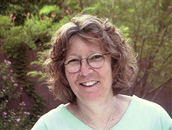 "I just can't imagine what October is going to look like on our shelves," said Gayle Shanks of
"I just can't imagine what October is going to look like on our shelves," said Gayle Shanks of 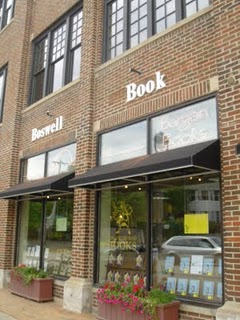 "Thrilled" was the word chosen by Daniel Goldin of
"Thrilled" was the word chosen by Daniel Goldin of  Michele Filgate of
Michele Filgate of  The large number of notable books has also created challenges for organizing events. Jessica Stockton Bagnulo of Brooklyn's
The large number of notable books has also created challenges for organizing events. Jessica Stockton Bagnulo of Brooklyn's 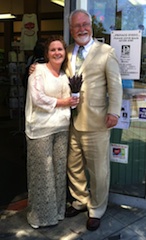 Last month,
Last month, 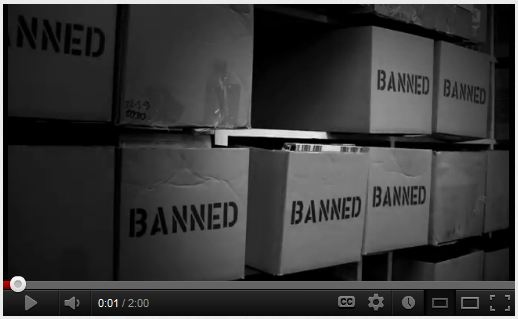 Bookmans Does Banned Books
Bookmans Does Banned Books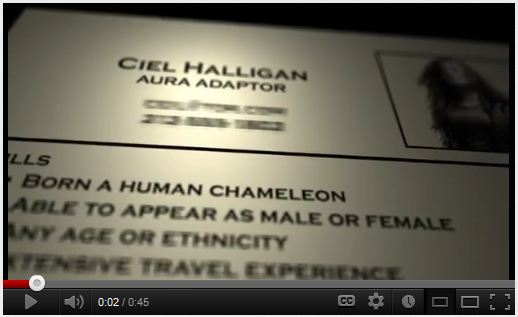 In a Fix
In a Fix
 Book you've faked reading:
Book you've faked reading: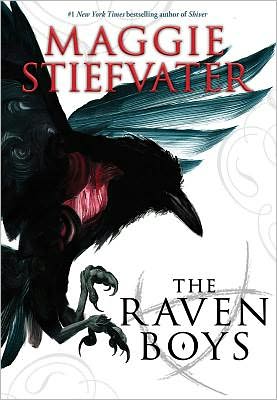 In Maggie Stiefvater's (Shiver; The Scorpio Races) spellbinding novel of friendship, romance and death, the first in a planned quartet, the author once again carves out new territory. Sixteen-year-old Blue has been lovingly raised by her mother, Maura, a psychic, along with a chosen tribe of other psychics like her. They have all made the same prediction: "If Blue was to kiss her true love, he would die."
In Maggie Stiefvater's (Shiver; The Scorpio Races) spellbinding novel of friendship, romance and death, the first in a planned quartet, the author once again carves out new territory. Sixteen-year-old Blue has been lovingly raised by her mother, Maura, a psychic, along with a chosen tribe of other psychics like her. They have all made the same prediction: "If Blue was to kiss her true love, he would die."